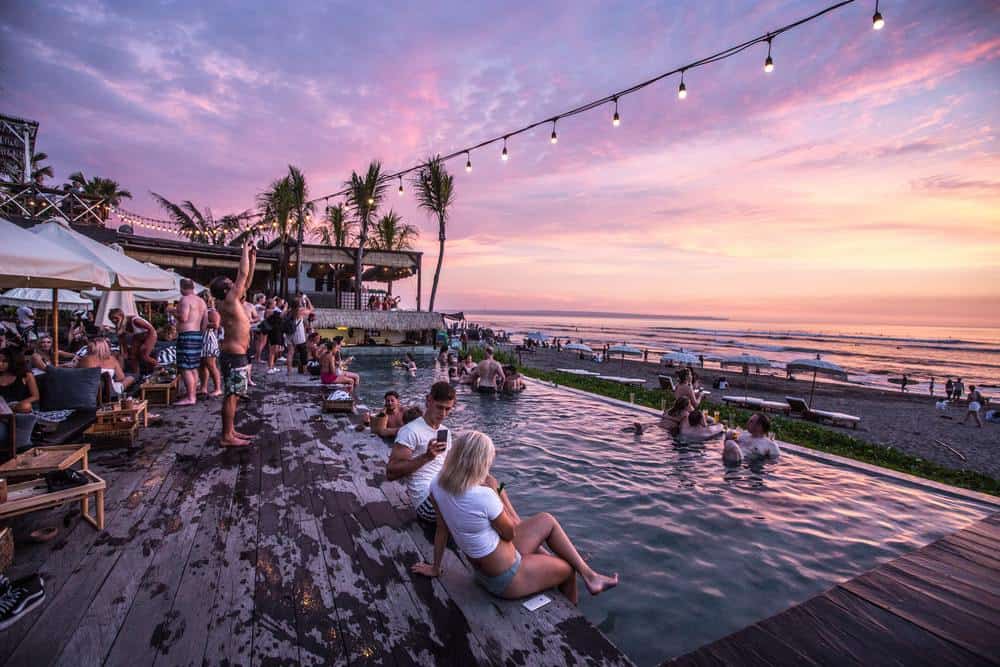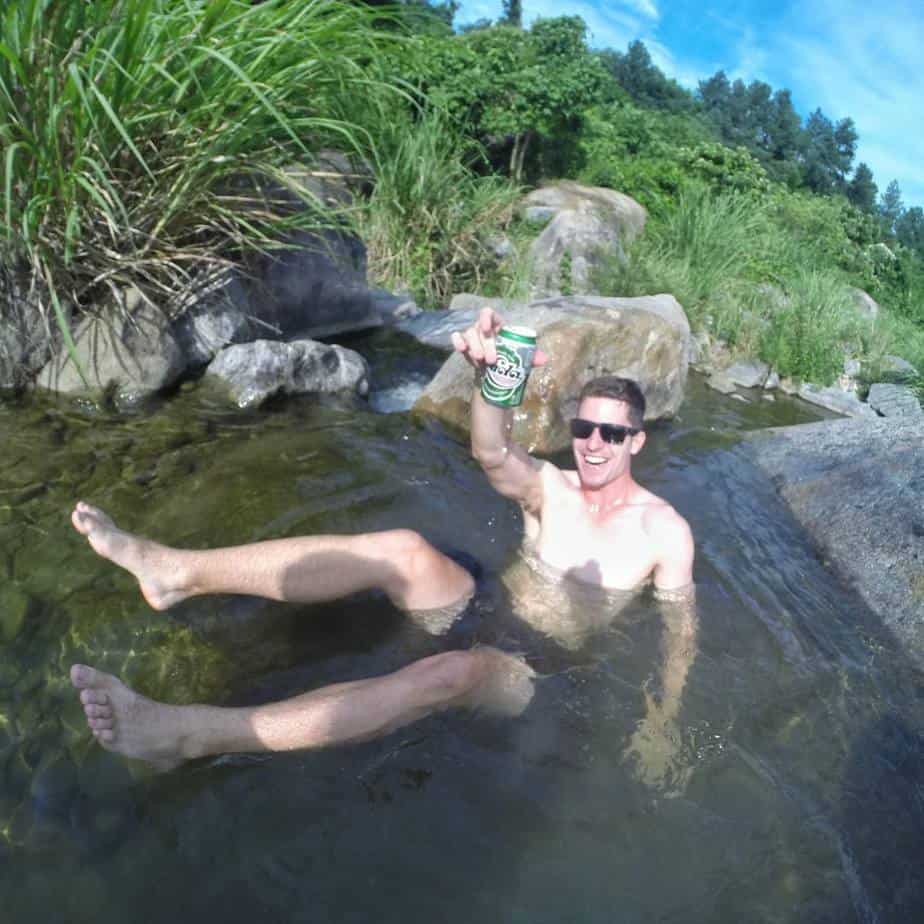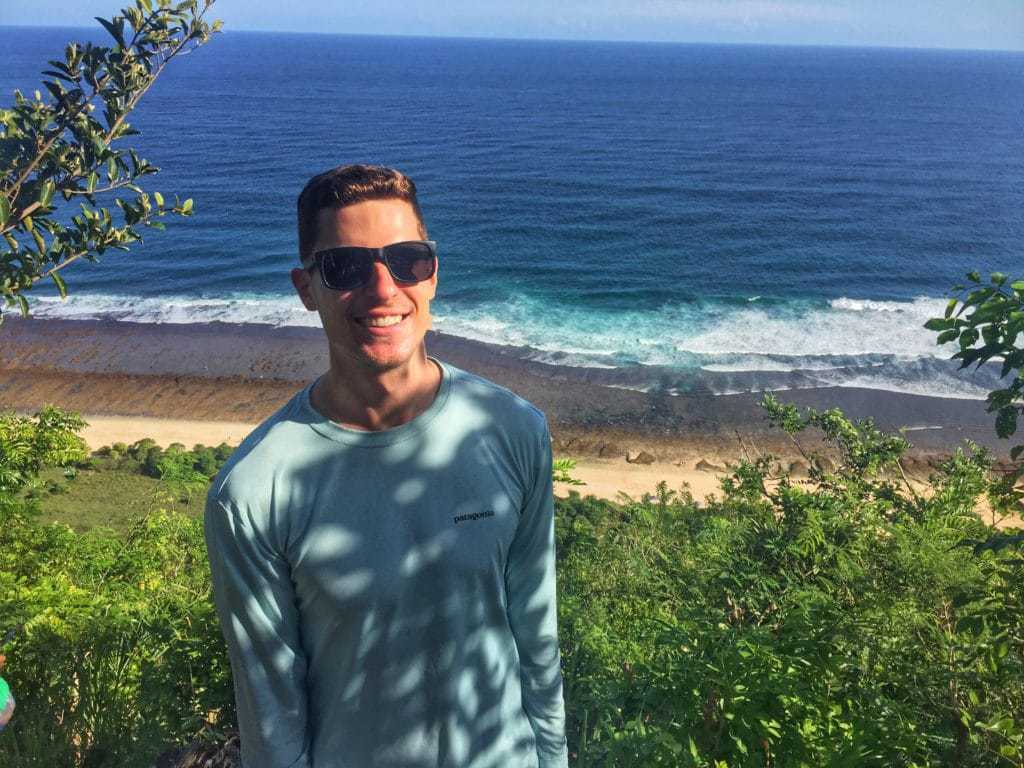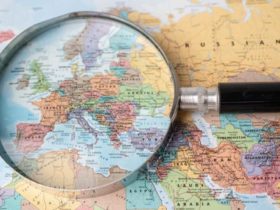Note: This post may contain affiliate links which means if you click on a link and purchase an item, we will receive an affiliate commission at no extra cost to you.
Related posts: Why Bali is My Favorite Place in the World and Canggu Travel Guide For Digital Nomads 2020
Short Travel Update: I’m a little over 60 days into my nomad trip through Asia and I recently moved from Canggu, Bali, Indonesia to Chiang Mai, Thailand! Here is a link to my original post about leaving the U.S. and here is my second post.
Table of Contents
Expectations
Before coming to Bali, it was hard to fathom what life here would actually be like. All I knew was that it was cheap, the weather was warm, there was great surfing, and that people generally love spending time here. These are all true statements, but as anyone who has traveled knows, there are lots of little nuances about a place that you only learn through experience. Here’s a full breakdown of my thoughts on the differences between life in the U.S. and Bali.
The short version is that Bali is incredible: it’s cheap, the weather is warm, you live next to the beach, the food is amazing and people are generally very happy.
Quick Breakdown of the Canggu Area in Bali
I’m living in Canggu which was ranked on NomadList as the 6th best digital nomad location in the world. It is a surfing town just north of the upscale Seminyak area which is north of the most touristy area, Kuta. Kuta is sometimes called the Australian version of Jersey Shore because of how wild and commercial it is.
Canggu is a westernized town full of expats and digital nomads that is currently undergoing a crazy development spurt. To put it in perspective, apparently the main street of Canggu had around 15 restaurants 3 years ago and it now has 100+ with many more being built. It has become a much more popular destination due to its young, less trashy/commercialized nature.
Cost of Living
This is the most obvious (and maybe exciting) difference because most things in Bali are so, so cheap.
Rent: My rent in Bali was $300/month compared to $2000/month in San Francisco – this is definitely on the lowest end of the spectrum but you can find really nice places here for $500/month. You could also get this as low as $5/day if you wanted to stay in hostels.
Meals: The food is phenomenal in Canggu and costs $1.50-6 per main course. $1.50-2.50 if you eat at local restaurants (called Warungs) and $3-6 if you eat at more westernized places.
Toiletries: To provide a benchmark, a bar of soap only costs $.15-.25 which is shockingly low. I think it would be impossible to find soap that cheap in the U.S.
Beer at Bars: $1.75 at a bar for a bottle in Canggu.
What is More Expensive Here: Sunscreen and other products that aren’t used by the locals. Sunscreen is about 1.5-2x the price of what it costs in the U.S.
Cheapest Possible Living: Hypothetically you could live in a hostel for $5/night and eat at Warungs (local restaurants) for $2/meal and survive on $350-400/month. I wouldn’t recommend it though :).
Transportation / Driving
This video is in a much busier area than where I live but it’s a good snapshot into the lawlessness and craziness of the roads in Bali:
Everyone rides around on mopeds in Bali which is both fun and absolutely terrifying. Renting a moped costs about $1.80/day (if you rent for the month) and gas costs somewhere around $1.75 per week. Driving in Bali is different in the sense that there aren’t strict road rules, people instead drive off of instinct. The ratio of mopeds to cars is about 10:1 whereas in most areas in the U.S. where I’ve lived it’s probably closer to 1:40.
In Canggu there aren’t street lights or stop signs. Four-way “stops” are really just four-way natural flow intersections where the most aggressive motorist goes. One way roads are never actually one way because mopeds drive the wrong way to save time. And some single lane roads, like the “shortcut” bridge next to my house, are two-way for both cars and motorbikes where the cars take impatient turns crossing the 75+ yard rice-field bridge.
Safety:
Close to 600 people die yearly in traffic fatalities in Bali and very sadly an Australian died in Canggu during my last week there. I’ve seen my fair share of minor-major accidents and even had the pleasure of pulling a stranger’s moped out of a rice field.
Bribing:
Bribing police is a common and widely accepted practice in Bali. While I’ve never had to do this myself, it’s well known that if you’re pulled over that you give them about four dollars in local currency and you’ll be on your way quickly.
If you ever get in trouble, there is always a price that will get you out of that trouble.
Other Details
Language:
The local language is Bahasa Balinese but most of the locals speak English so getting by as an American is extremely easy.
Diversity:
Canggu is incredibly diverse and full of expats but it doesn’t have many Asian tourists for some reason. There are some Americans but it’s mostly Australians and Europeans with some Canadians sprinkled in as well. The town has an interesting blend of locals and tourists and my guess is that in the next 1-2 years it will continue to slant towards tourists. Rent prices are driving many of the locals who work in Canggu to live as far as an hour away.
Shipping:
I didn’t realize how limited the shipping infrastructure is in Bali until I got here. While you can order things online, through sites like Rocket Internet’s Lazada, shipping is fairly slow and there isn’t any guarantee that it’ll actually arrive. The post office opens every package before delivering it and from what I’ve heard they then choose how large of a fee to assess you based on its contents. I’ve even heard horror stories about drugs being planted inside of packages and then tourists being forced to bribe themselves out of a drug prosecution.
Final Thoughts
Hopefully this provides a quick snapshot of life here compared to life in the U.S. This is far from comprehensive and I’m happy to answer any questions or provide tips if you’re interested in visiting Bali!










Leave a Reply
View Comments